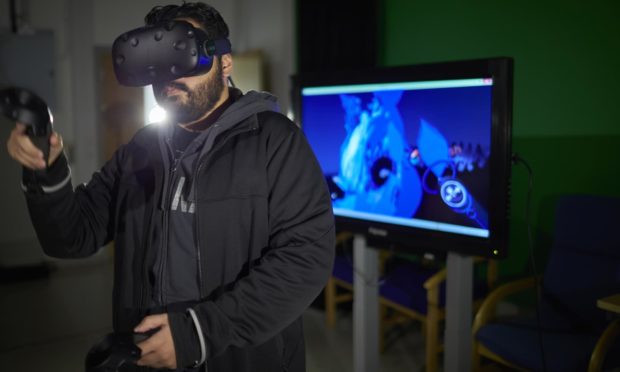Video games will help influence a university-based scheme to cut carbon emissions in Tayside.
Food and drink businesses across the region could save millions through the adoption of a more circular economy.
Abertay University hopes to capitalise on this with its Transforming Net-Zero project.
The project is one of three across Scotland to share £2.7 million in funding from Scottish Enterprise’s Low Carbon Challenge Fund.
The fund was set up last year and provided opportunities for public, third sector and academic institutions to help develop projects for small and medium-sized enterprises (SMEs) to support low carbon innovation and manufacturing capabilities across Scotland.
The other successful projects are Translating Hydrogen into Action, from St Andrews University, and Strathclyde University’s Supply Chain Development for Lifetime Extension and Reuse.
Project will use knowledge of gamer behaviour to help influence choices
The Abertay project is worth £672,938 in total. It will provide advice to food and drink SMEs on energy use, water technology and carbon sequestration as well as prepare companies for new net zero market opportunities.
In addition, the university will create a digital platform to support the design and adoption of low carbon products and services, tapping into expertise from academics working in video games.
Abertay is Europe’s leading university for video games education and has pioneered the use of “applied games” and gamification in business.
Dr Iain Donald of Abertay’s School of Design and Informatics said the new project would explore how game design could enhance ‘nudging behaviours’ that help keep players engaged, and how this approach can be adapted to influence perceptions around low carbon products.
He said: “This is a hugely exciting project for Abertay which will draw in expertise from all three of our academic schools to explore creative new low carbon solutions.
“Video games are incredibly successful at hooking a player’s interest and at influencing choices and thinking.
“In this project, we will be looking at ways in which these techniques can be used to prompt positive behaviours in members of the public when it comes to making low-carbon choices.”
St Andrews project focuses on hydrogen storage
The University of St Andrews, in partnership with the University of Strathclyde will deliver the Translating Hydrogen into Action project that will complement the endeavours of the newly formed Hydrogen Accelerator facility funded by Transport Scotland.
The university will provide a knowledge exchange programme informing companies of recent advances in energy storage technologies as well as access to specialised manufacturing and testing equipment.
Scottish Enterprise head of low carbon transition Andy McDonald said: “The Low Carbon Challenge Fund is a catalyst to support economic opportunities in Scotland and nurture businesses to develop net zero products, processes and services.
“I look forward to seeing these pioneering projects take shape as they have the potential to transform the way companies work whether it is reducing manufacturing waste, future-proofing transport or developing new hydrogen products.
“The three successful projects will harness the expertise of public sector partnerships and engage businesses in Scotland towards the transition to a net zero nation.”
More stories like this:
Climate change will force food and farming industry to adapt
£18m for world’s first project to heat homes with 100% green hydrogen
Fife distillery awarded more than £70,000 as it continues on ‘green’ journey to decarbonisation











